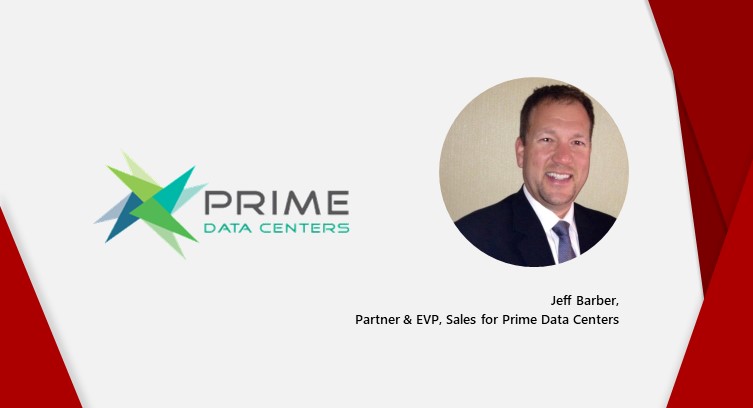In conjunction with MWC Barcelona 2022 which will be taking place from the 28th of February to the 3rd of March, Tara Neal, Executive Editor of The Fast Mode spoke to Jeff Barber, Partner and EVP, Sales for Prime Data Centers on the company's plans and showcases for this year's event.
Tara: What do you think MWC 2022 will be all about? And what are your MWC 2022 plans?
Jeff: MWC 2022 will cover the usual themes of the past few years, including 5G, AI, IoT, and more. The newer, buzz-worthy topics will include things like infrastructure resiliency, web3, and blockchains.
Infrastructure resiliency is our pick for most interesting and yet underrated. Why? The pandemic, supply chain challenges, and the multi-faceted issues brought about by climate change - and our adaptation to it - highlight the need for greater communications and tech infrastructure resiliency. That applies to both hard infrastructure and soft.
It’s important to note that the global power grid should be considered part of communications and tech infrastructure. After all, our infrastructure doesn’t work without power. And it’s becoming more apparent every week that the world’s current power infrastructure is not ready for the future.
The same can be said for global water management, mining, and recycling strategies and infrastructure. For too long, the technology world has ignored the negative byproducts of our efforts. We can no longer afford to ignore it. From now on, the most successful tech brands will be those that tackle these issues head-on.
As we improve our communications and tech infrastructure, we’ll have the added benefits of making it more defensible against the additional threats of disinformation, misinformation, and cybercrime.
The need for systems thinking is growing, since all of these systemically important, globally impactful topics are highly interrelated. We want to continue to encourage systems thinking and not isolated, siloed discussions about any one artificially narrow topic.
We hope to participate in and elevate this conversation at MWC 2022 and beyond.
Tara: How has the pandemic impacted the operational and business landscape of the tech segment you are operating in?
Jeff: As an industry, data center development has been both hurt and helped by the pandemic. It’s been hurt by supply chain challenges and labor shortages. It generally takes longer to build a new data center now than it did prior to the pandemic.
However, it’s been enabled by the rapid acceleration of digitization. For example, telemedicine was barely used before the pandemic. After the outbreak, telemedicine adoption and innovation experienced years worth of evolution in just months. Remote work has seen an incredible acceleration. While apps like Slack and Zoom were in use long before the pandemic, they became household brands virtually overnight. Microsoft Teams, which had roughly the same number of daily active users as Slack prior to the pandemic, now boasts several times the amount of daily Slack users.
All of this means that the world’s demand for data centers has increased significantly post-pandemic. However, big booms often lead to big busts, especially in lumpy industries like commercial real estate. We are prepared to both take advantage of the current demand as well as avoid over-leveraging ourselves in order to better weather future cycles.
Tara: What emerging trends/technologies have you observed in your tech segment in recent months?
Jeff: Sustainable data center development has quickly evolved from marketing material to core business strategy. Leading developers are now incorporating sustainability and resilience into every consideration, from site selection to temperature and humidity control to power consumption and grid services. Sophisticated data center customers are pursuing strategies like time-shifted computing in order to reduce their carbon footprint while reducing their power costs. We believe that the sustainability drive will force many innovations in data center development and operation.
Mr. Jeff Barber joins Prime Data Centers with more than 20-years of experience leading global sales and marketing teams for some of the world’s largest technology companies. His prior roles have spanned both public and private sectors in a variety of technology verticals. Verticals such as data storage technologies, Business Continuance, High Performance Computing and network technologies.






















